If you’re looking for a how-to DIY a lucky rabbit’s foot, we have you covered!
As a kid growing up I owned several lucky rabbit’s feet attached to key rings or a purse with a ball chain in variations of colors. It didn’t dawn on me until after harvesting my first few rabbits that I hadn’t seen them as fashion statements anymore – possibly due to their declining popularity as a fad or maybe in relation in some part to animal rights. Either way, I harvested my rabbits, proudly, and I had every intent on saving what I could beyond eating the meat provided.
As a side note, if you don’t know (I surely didn’t) wild rabbit hide is super thin. I have since read that as rabbit ages, the hide grows thicker. I think one of my rabbits was more mature because I was able to remove his hide easily. I honestly didn’t even really know how to skin the rabbits because these were my first. But, by using previous knowledge from harvesting deer, I began with the feet.
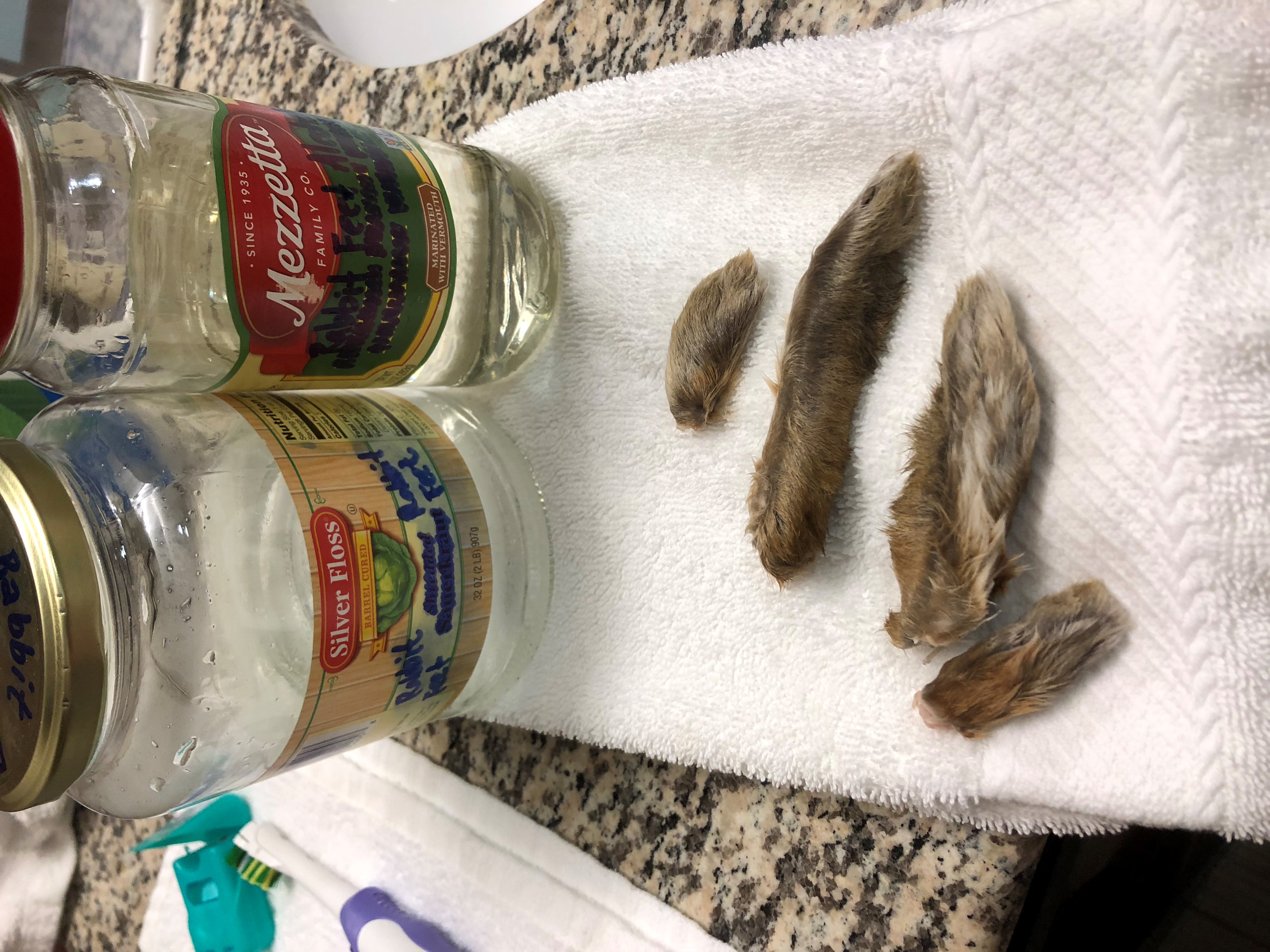
It was pretty easy to remove the hide and feet around the joint where the feet bend. The front feet are much smaller than the back but I kept all four. Now what? Initially, I left them on the table and thought about freezing them but opted for internet research instead. Who knew there were how-tos for preserving rabbit feet?
How to DIY a Lucky Rabbit’s Foot
Supplies
- Rabbit’s feet
- Mild dish soap
- 70% Isopropyl Alcohol
- Borax
- Ziploc bags or glass jars with well-fitting lids (large enough to hold your feet and added liquids)
- Water
- Silver Jingle Bells
- Pliers
- Gorilla epoxy
- Ball Chain with clasps
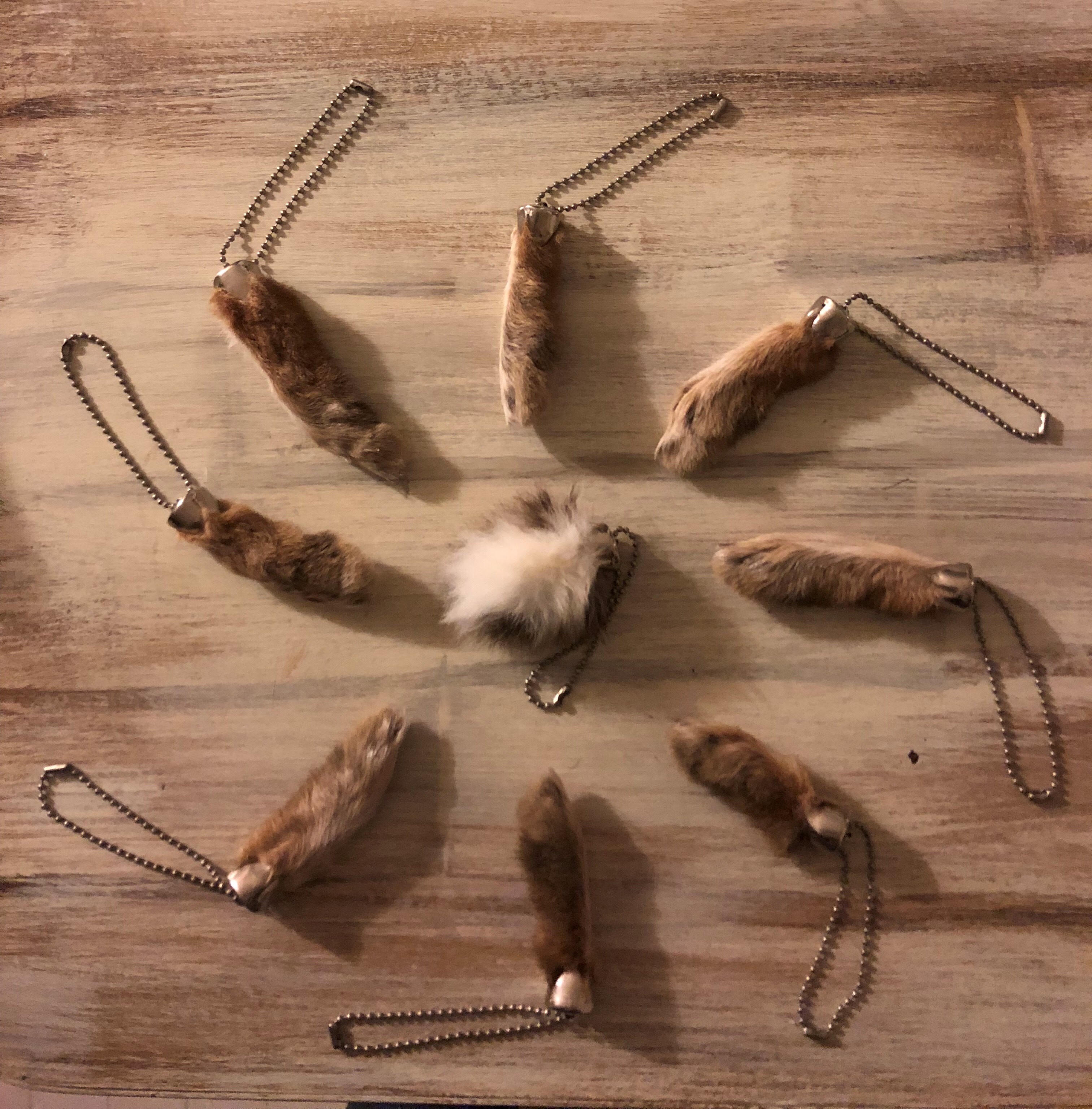
Instructions
- Wash rabbit’s feet well with water (temperature isn’t relevant) with a mild dish soap such as Dawn or Palmolive. Rinse well with fresh running water and squeeze. Do NOT wring the extra moisture out of the foot. If you are not going to be able to immediately preserve the feet, you can put them in a Ziploc bag and keep them in the freezer until you are ready to continue.
- Add feet to Ziploc or glass jar and fill with 70% Isopropyl Alcohol ensuring that the rabbit’s feet are completely submerged. Close the bag or lid securely. Leave in alcohol for 48 hours.
- Remove the rabbit’s feet from alcohol, but keep in mind you can reuse the alcohol for additional preservation of the rabbit’s feet by pouring it into a glass jar with a lid.
- Rinse all alcohol from fur using running water and mild dish soap. I rinsed mine several times. Remember to squeeze out the extra water and do NOT wring (which could cause hair slippage and/or bald spots).
- Dissolve 1 tablespoon of Borax per cup of warm water (again you’ll need enough liquid to completely submerge the rabbit’s feet). I used a double recipe for 4 feet and a triple recipe for 12 feet.
- Submerge the feet in the Borax solution for 24 hours.
- Rinse the rabbit’s feet thoroughly with warm running water. Use a small amount of dish soap to ensure all remaining dirt, oils, and Borax detergent are removed. Again, squeeze excess water from feet. Do NOT wring.
- Allow to completely air dry which could take several days. I did see one suggestion that recommended tying a small piece of twine around each foot and hanging it to dry, although I didn’t do this.
- Add the silver jingle bells and ball chain.
- Use your pliers (cover the tips with tape to prevent scratching the bells) to carefully pry open each edge of the bell just enough to remove the small “jiggle” bead hanging inside and ensure the foot will fit. Each foot is shaped differently, so keep that in mind.
- Match up your foot to your “bell” and mix up a small amount of epoxy with a toothpick or popsicle stick (do not use plastic as the epoxy might melt it). Place a small amount of epoxy on each of the insides of the 4 edges of the “bell,” and slide the cut end of the rabbit’s foot in, holding in place for several seconds.
- Pinch all of the sides of the “bell” together closing it securely around the rabbit’s foot. Add a few inches of ball chain.
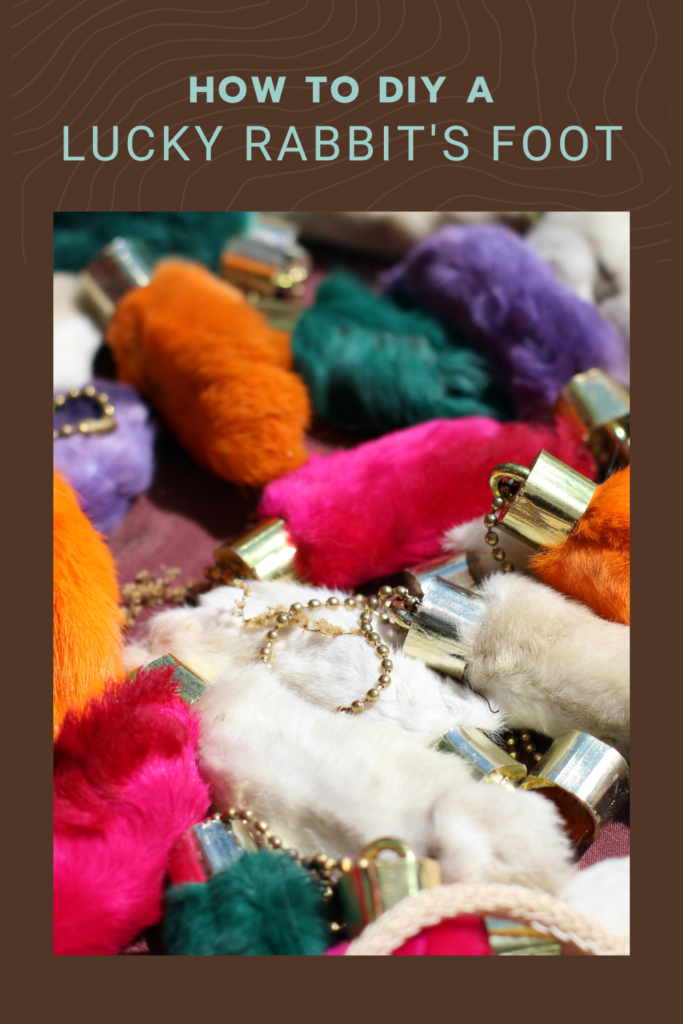
What is a rabbit’s foot?
A rabbit’s foot is a lucky charm or talisman that is believed to bring good luck and fortune to its owner. It is typically a preserved rabbit’s foot that has been dried and treated with various chemicals to preserve it.
History of the Rabbit’s Foot
The rabbit’s foot has a long history and is deeply rooted in various cultures and superstitions. Its origins can be traced back to ancient Celtic and African beliefs, where rabbits were considered sacred animals associated with good luck and fertility. The concept of using a rabbit’s foot as an amulet or talisman spread across different regions and evolved over time.
In Europe, during the Middle Ages, the rabbit’s foot gained popularity as a symbol of protection against evil spirits and witchcraft. It was believed that carrying a rabbit’s foot would ward off misfortune and bring good luck. The tradition of using a rabbit’s foot as a lucky charm was later introduced to the United States by European immigrants.
How to use a rabbit’s foot
Using a rabbit’s foot as a talisman is relatively simple. To make the most of its supposed luck-bringing properties, it is commonly advised to follow these steps:
- Acquire a rabbit’s foot: Obtain a rabbit’s foot, preferably from a rabbit that was killed for other purposes, such as food or fur.
- Preparation: Some individuals prefer to cleanse the rabbit’s foot before using it as a talisman. This can be done by washing it with water or burying it in the ground overnight.
- Carrying the rabbit’s foot: Keep the rabbit’s foot in a pocket, wallet, or purse to have it close to you at all times. Alternatively, you can attach it to a custom key chains or wear it as jewelry.
- Belief and intention: It is essential to believe in the power of the rabbit’s foot and set your intention for the luck you wish to attract. Many people believe that focusing on positive thoughts and visualizing good fortune amplifies the effectiveness of the talisman.
Remember that the rabbit’s foot is primarily considered a symbolic token of luck, and its power is believed to come from the belief and intention of the individual using it.
Superstitions surrounding the rabbit’s foot
The rabbit’s foot has been associated with numerous superstitions throughout history. Some common beliefs and superstitions surrounding the rabbit’s foot include:
- Good luck: The rabbit’s foot is believed to bring good luck to its owner, especially in matters of wealth, prosperity, and success.
- Protection: It is thought to protect against evil spirits, curses, and negative energies.
- Fertility and family: In certain cultures, carrying a rabbit’s foot is believed to enhance fertility and promote a happy and healthy family life.
- Gambling luck: The rabbit’s foot is often considered a lucky charm in games of chance. It is believed to bring fortune and increase the chances of winning.
While these superstitions have persisted for centuries, it’s important to remember that they are based on folklore and personal beliefs rather than scientific evidence.
Other uses for rabbit’s feet
In addition to being used as lucky charms, rabbit feet have also been used for other purposes throughout history. For example, they were once used as ink erasers and were also believed to have medicinal properties.
Alternatives to the rabbit’s foot
If you are looking for a lucky charm but are uncomfortable with the idea of using a rabbit’s foot, there are many other options available. Some popular alternatives include horseshoes, four-leaf clovers, and lucky coins.
Custom Printed Pins are also a popular alternative to lucky charms. People often quickly design and customize beautiful pins, featuring symbols and images that symbolize good luck and blessings, along with their favorite messages, creating unique custom printed lapel pins.
These lucky charms are not only creative but also a great way to express good wishes and pray for good fortune for yourself and your friends.
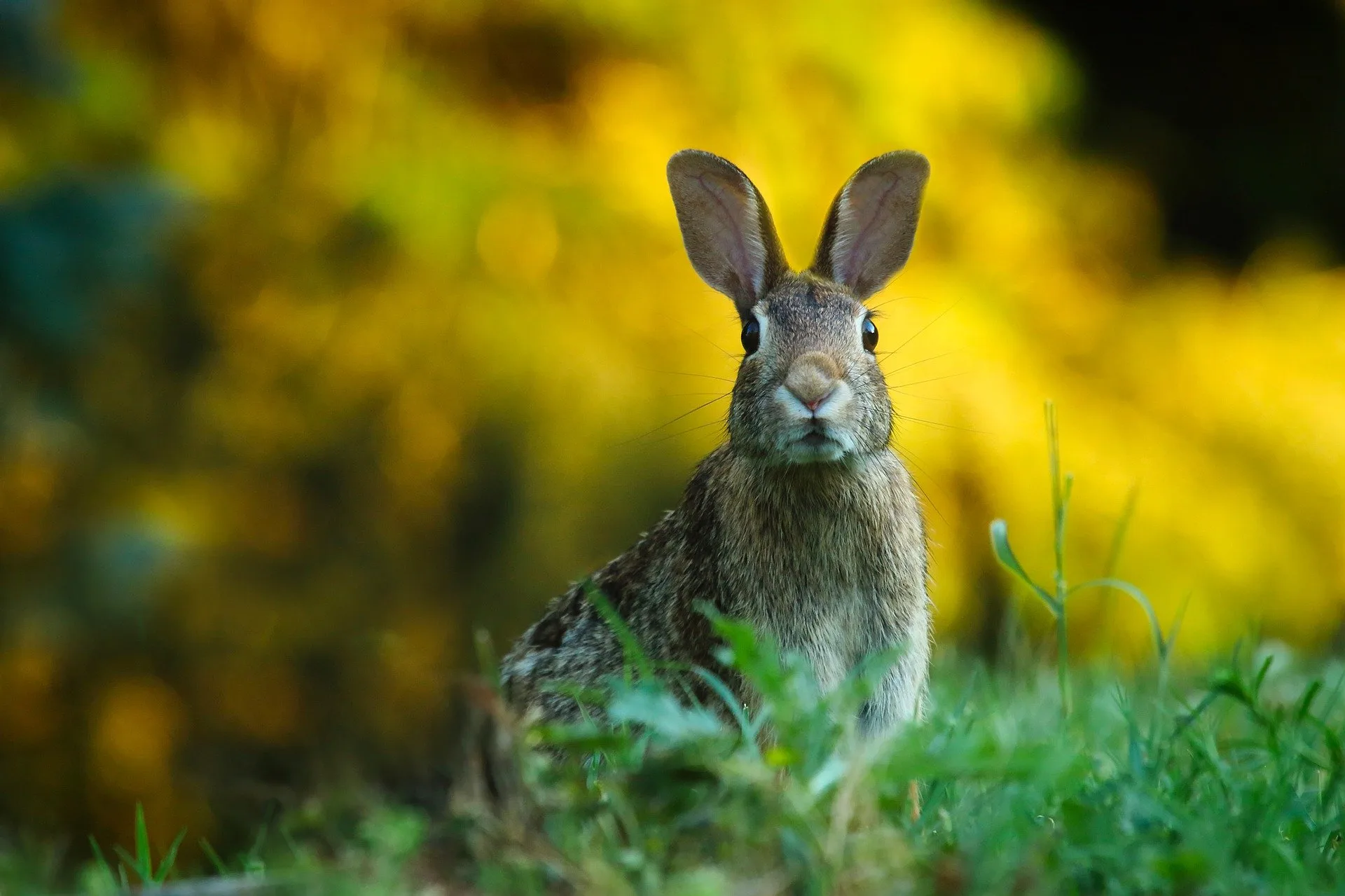




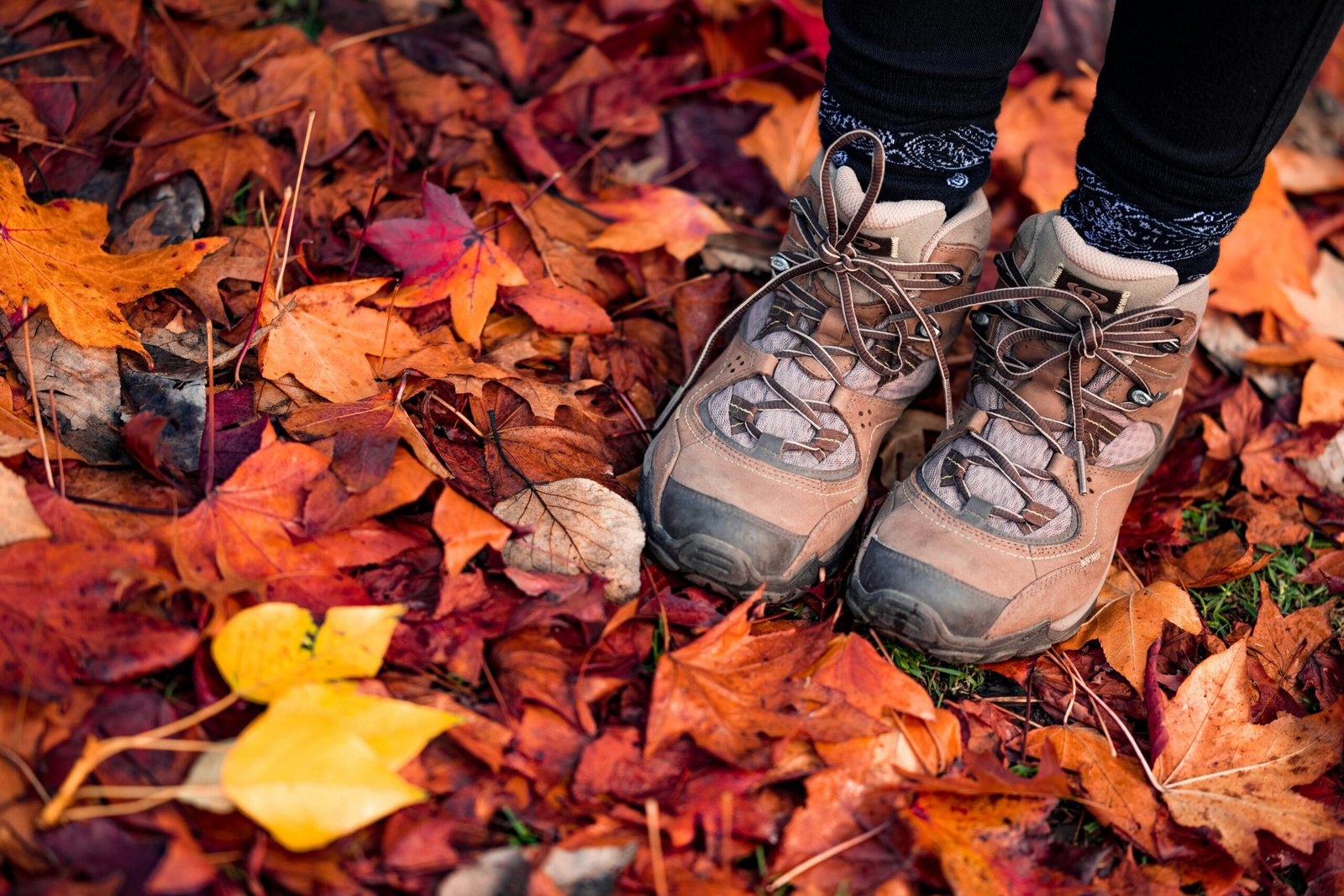
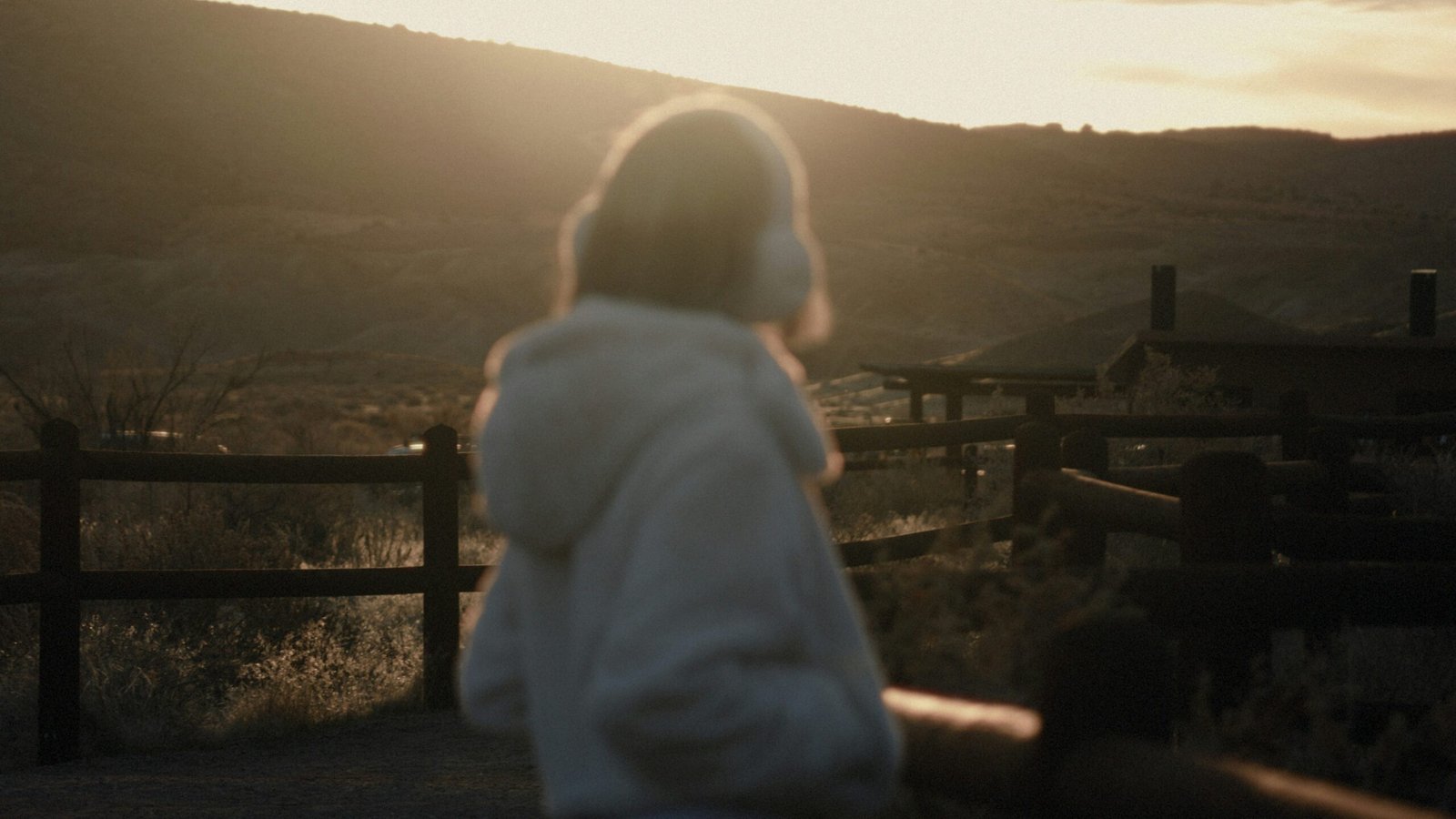
Great articles and information Victoria I enjoy your writing and love especially the food recipes.. Awesome job.
Can you use 50% isopropyl alcohol?